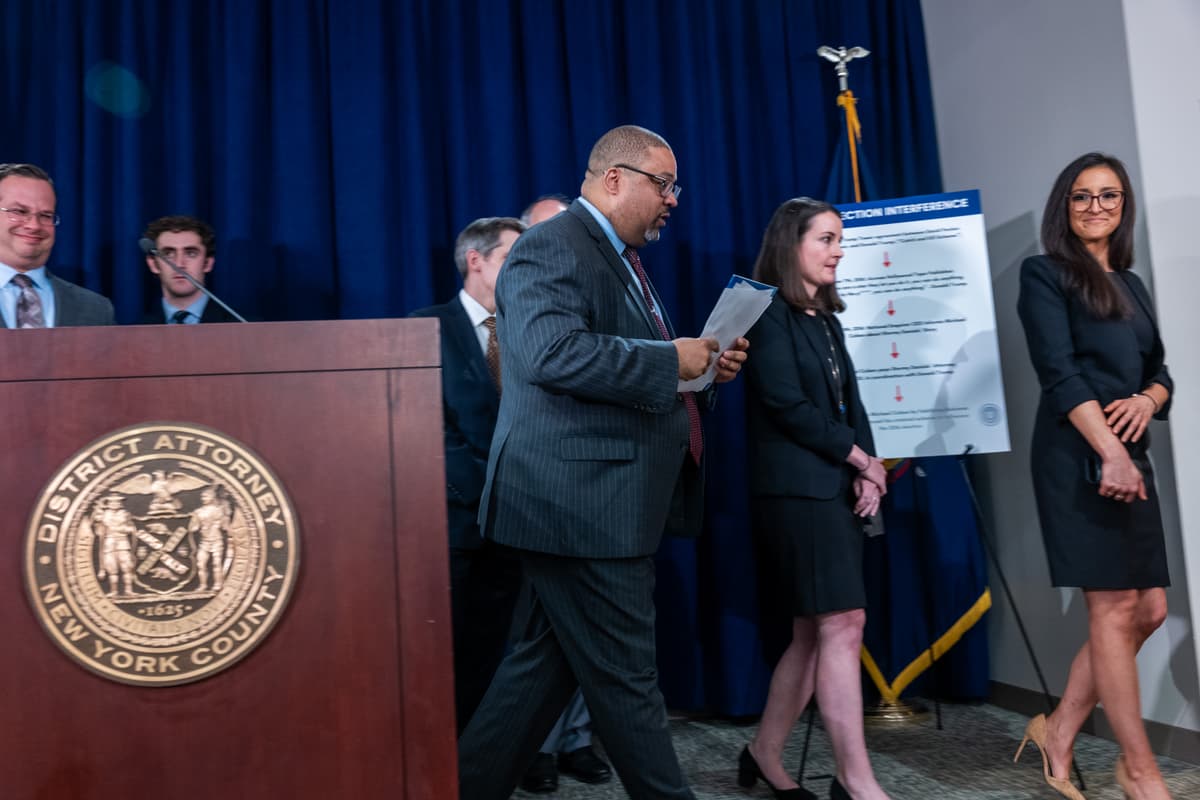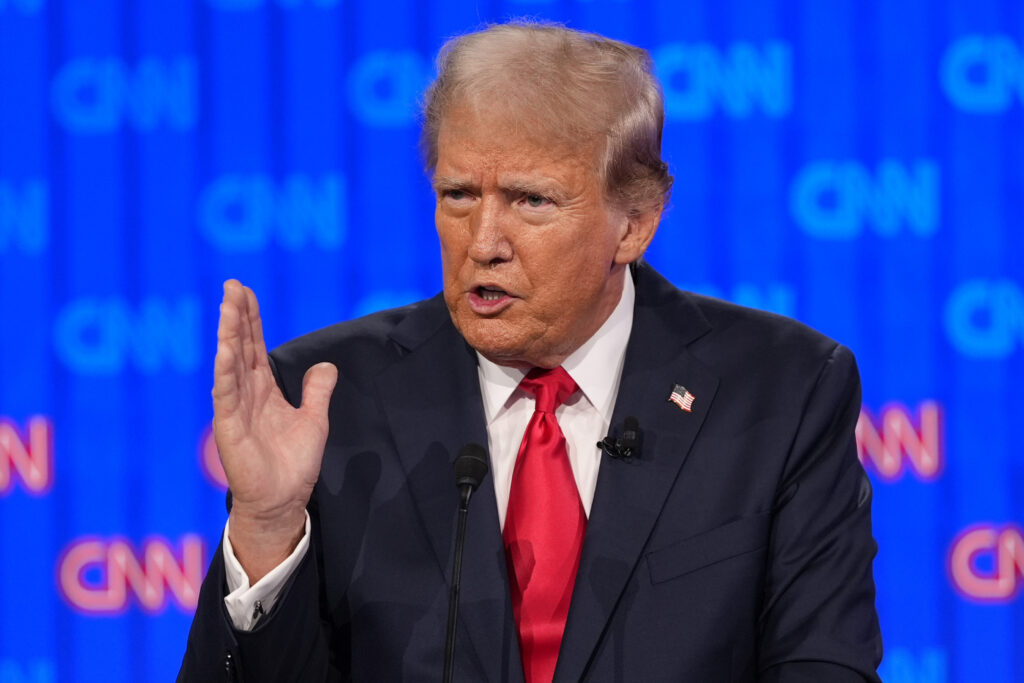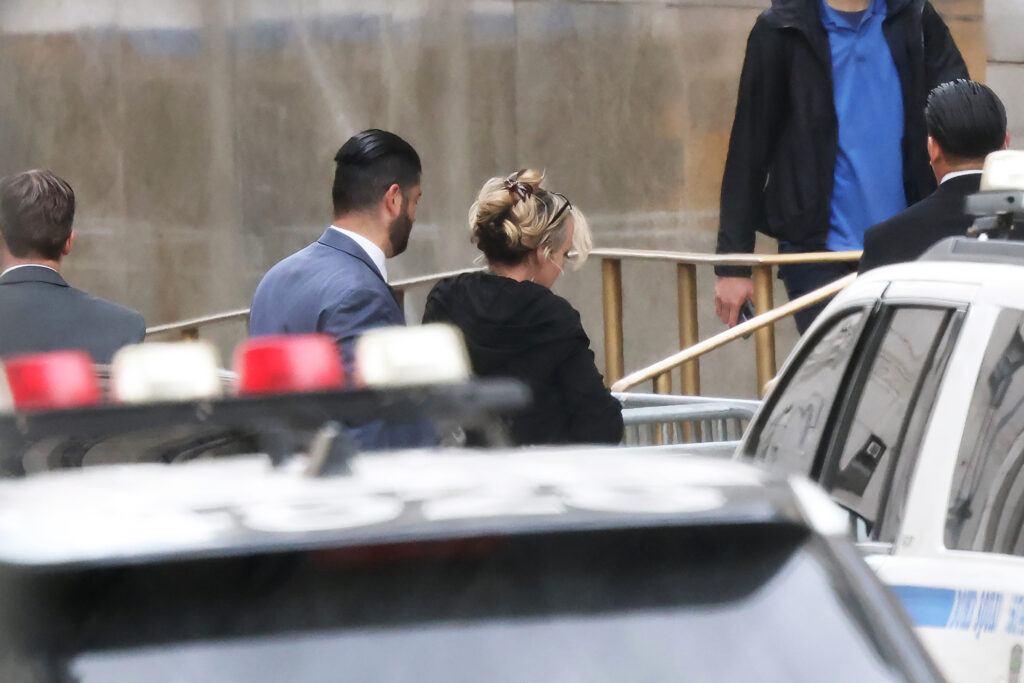Bragg Agrees To Delay Trump’s Sentencing After Supreme Court Ruling Threatens Hush-Money Case
Within hours of the Nine’s ruling, Trump’s lawyers had filed a letter with Judge Juan Merchan challenging the verdict in the case.

The Manhattan District attorney, Alvin Bragg, has agreed to delay President Trump’s sentencing in the hush-money case until the court reviews a new motion challenging the validity of the case in light of Monday’s Supreme Court ruling on presidential immunity.
“Although we believe defendant’s arguments to be without merit, we do not oppose his request for leave to file and his putative request to adjourn sentencing pending determination of his motion,” the prosecutors wrote in a letter sent to the presiding judge, Juan Merchan, on Tuesday.
Trump’s attorneys had asked the court on Monday, just hours after the high court ruling that presidents have broad immunity from prosecution for official actions, for permission to file a motion to challenge the verdict in the hush-money case.
On May 30, Trump became the first former president in U.S. history to be convicted of a crime, when a jury found him guilty of 34 felonies. Mr. Bragg had charged Trump with falsification of business records in a scheme to interfere with the 2016 election. At the heart of the case was a $130,000 hush-money payment that his former personal lawyer, Michael Cohen, made to the adult film star, Stormy Daniels, whose real name is Stephanie Clifford, in 2016 to buy her silence about her claim that she had a single sexual encounter with Trump at a celebrity golf tournament at Lake Tahoe in 2006. The prosecution accused Trump of directing Cohen to wire the money to Ms. Clifford and then disguising his reimbursement to Cohen as a legal fee. Trump denies all the charges. At last week’s debate he said, “I didn’t have sex with a porn star.”

Trump is alleged to have reimbursed Cohen for the payment while he was president. Trump’s Oval Office assistant, Madeleine Westerhout, and his White House adviser, Hope Hicks, both testified, as did Trump Organization officials who described how they communicated with the White House on checks they needed Trump to sign. In their letter to the judge, Trump’s attorneys argued that Monday’s Supreme Court ruling on presidential immunity confirmed their position that Mr. Bragg should not have been allowed to offer evidence at the trial regarding Trump’s “official acts” and, as a result, the jury’s guilty verdict should be set aside.
Will Scharf, an attorney who represents Trump in the immunity case, told CNN Monday night that the Supreme Court ruling “‘absolutely’ impacts the hush money case.”
“The Supreme Court was very clear that for acts that fall within the outer perimeter of the president’s official responsibilities, acts that are presumptively immune from prosecution, that evidence of those acts cannot be used to try essentially private acts,” Mr. Scharf said on “The Source.”
Mr. Scharf said evidence such as Trump’s communications through official White House communication channels and posts from Trump’s Twitter account would fall “neatly within the outer perimeter of a president’s official responsibilities and duties,” and were “not admissible as evidence in that New York trial.”

Trump’s attorneys requested July 10 as a deadline to file their motion, one day before the sentencing, which was scheduled for July 11, just days before Trump is set to officially accept the Republican presidential nomination at the party’s convention in Milwaukee. In his answer on Tuesday, lawyers for the Manhattan district attorney’s office, agreed to a possible postponement of the sentencing and asked for a deadline to file their response motion by July 24.
If the court agrees to this new timeline, the sentencing could be pushed into late July or August, unless the court agrees to set aside the verdict and orders a new trial.

